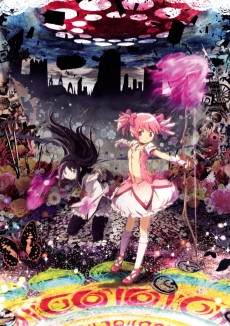EVANGELION SHIN MOVIE: HA
MOVIE
Dubbed
SOURCE
ORIGINAL
RELEASE
July 27, 2009
LENGTH
112 min
DESCRIPTION
In the earliest battles against the monstrous Angels, young Eva pilots Shinji and Rei were forced to carry humanity's hopes on their shoulders. Now, with the deadly onslaught of the Angels escalating and the apocalyptic Third Impact looming, Shinji and Rei find their burden shared by two new Eva pilots, the fiery Asuka and the mysterious Mari. Maneuvering their enormous Eva machines into combat, the four young souls fight desperately to save mankind from the heavens—but will they be able to save themselves?
(Source: FUNimation)
Note: Exists in several versions, as denoted by the version number:
• 2.0: Jun 27, 2009 - Original theatrical release
• 2.22: May 26, 2010 - Blu-ray/DVD release with new scenes and 'readjustments'.
CAST

Asuka Langley Souryuu
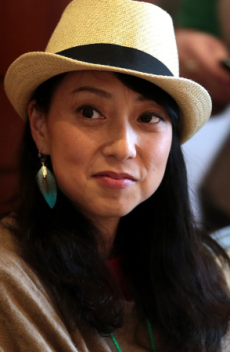
Yuuko Miyamura
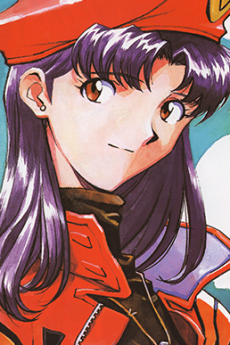
Misato Katsuragi
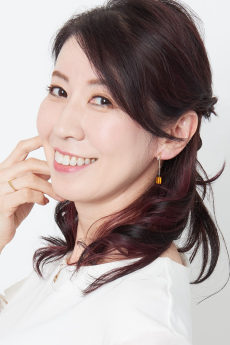
Kotono Mitsuishi
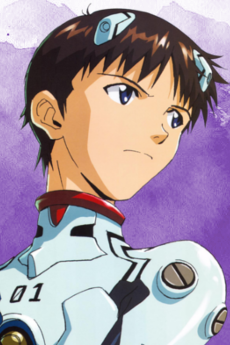
Shinji Ikari
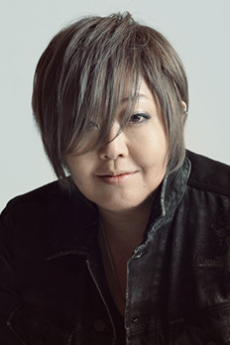
Megumi Ogata
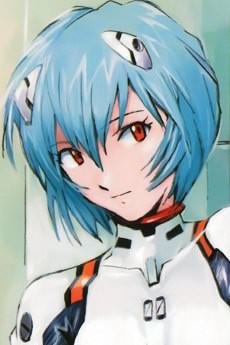
Rei Ayanami
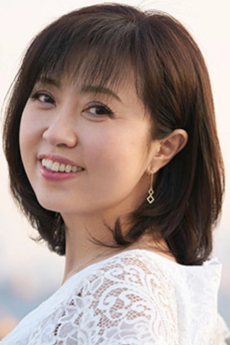
Megumi Hayashibara
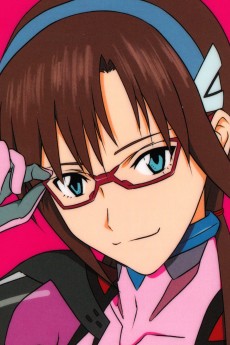
Mari Makinami Illustrious
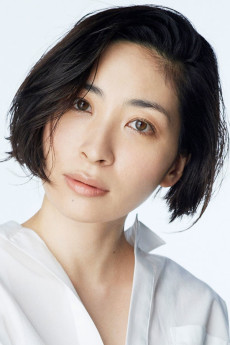
Maaya Sakamoto
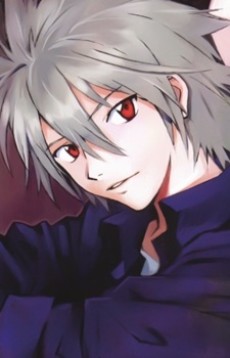
Kaworu Nagisa
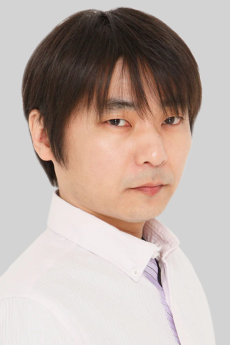
Akira Ishida
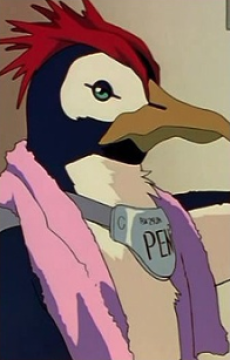
Pen Pen

Megumi Hayashibara
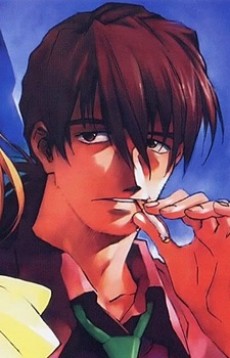
Ryouji Kaji
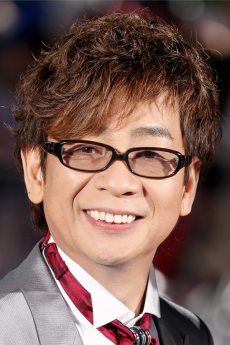
Kouichi Yamadera
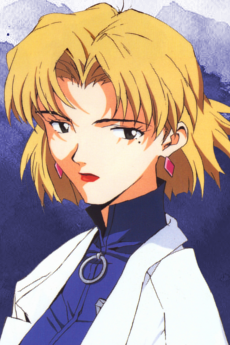
Ritsuko Akagi
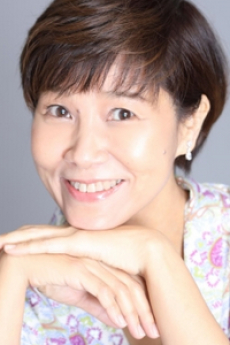
Yuriko Yamaguchi

Gendou Ikari
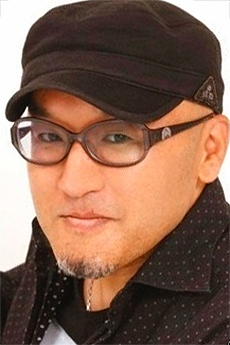
Fumihiko Tachiki
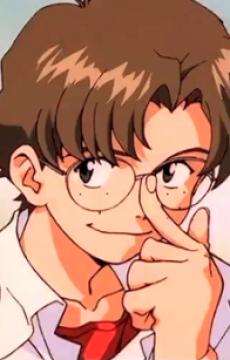
Kensuke Aida
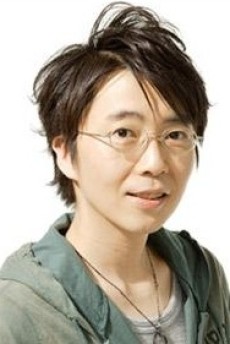
Tetsuya Iwanaga
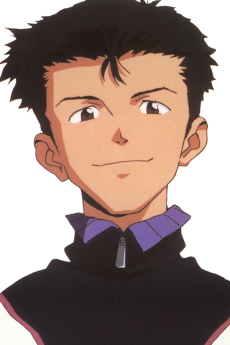
Touji Suzuhara
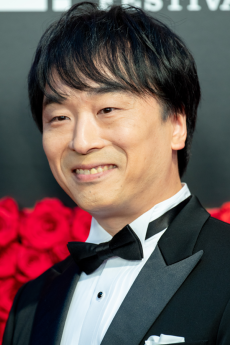
Tomokazu Seki
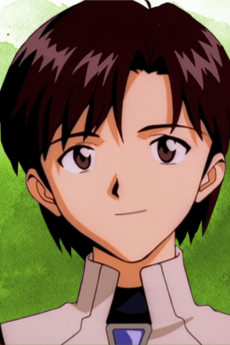
Maya Ibuki
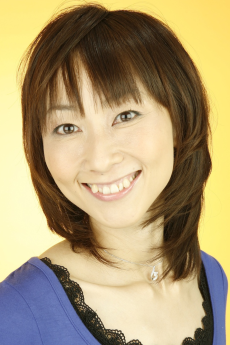
Miki Nagasawa
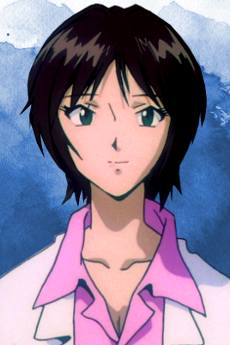
Yui Ikari

Megumi Hayashibara
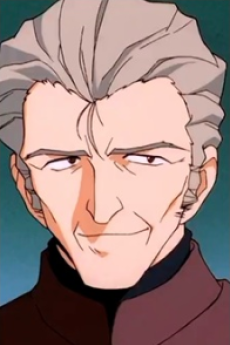
Kohzou Fuyutsuki
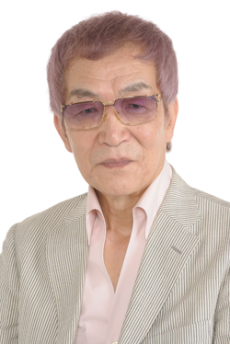
Motomu Kiyokawa
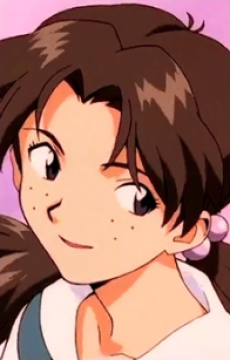
Hikari Horaki
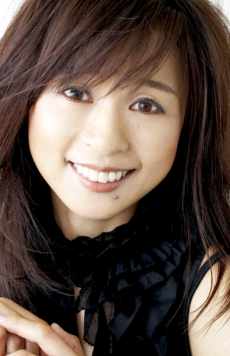
Junko Iwao
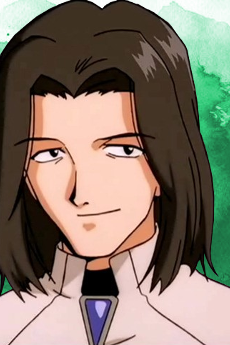
Shigeru Aoba
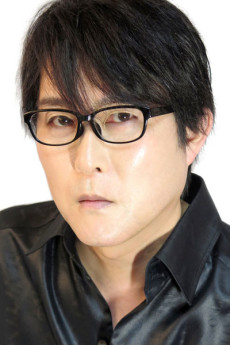
Takehito Koyasu
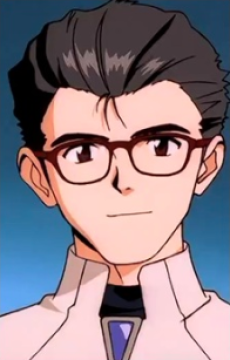
Makoto Hyuuga
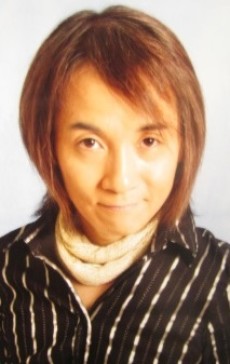
Hiro Yuuki
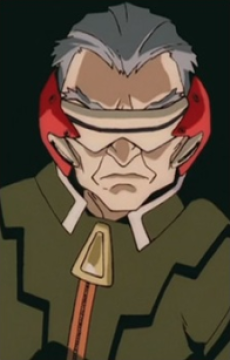
Keel Lorentz

Mugihito
RELATED TO EVANGELION SHIN MOVIE: HA
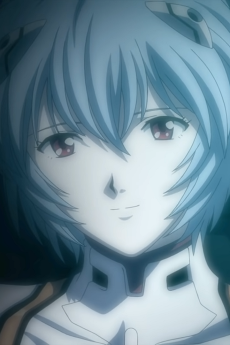 MUSIC ActionBeautiful World
MUSIC ActionBeautiful WorldREVIEWS

Pockeyramune919
92/100In 2.0, the Rebuild continuity comes spectacularly into its own.Continue on AniList[
 ](https://anilist.co/review/6501)
](https://anilist.co/review/6501)
[
__This Review Contains Spoilers for__ ___Evangelion: 2.0 You Can (Not) Advance___ and ___End of Evangelion___ ](https://anilist.co/review/6570)
](https://anilist.co/review/6570) Sequels can be what make or break a franchise; they can be what cement a series as great or they can show that the success of the first entry was a fluke. If the first entry of a new saga plays it safe, it's up to the next installment to assure fans that they won't be getting the exact same thing twice (looking at you, The Force Awakens v. The Last Jedi). This is the task that 2009's _Evangelion: 2.0 You Can (Not) Advance_ found itself straddled with. As I detailed in my review, its predecessor, _Evangelion: 1.0 You Are (Not) Alone_ rarely deviated from the original _Neon Genesis Evangelion_. This was ultimately fine by me, as I enjoyed the first few episodes of _Evangelion_ enough to not mind watching them again. Plus, with a new ending scene, I was confident in director Hideaki Anno's ability to deliver us a fresh, exciting product. And after watching the movie, I can assure you all that the rebuilds will be an entirely different beast from the television show.
Though, that needn't mean that said beast is necessarily a good one. After all, one of my friends claims that _1.0_ is their favorite rebuild movie expressly _because_ it's virtually the same as the original. With that in mind, what do I think of the second installment of the rebuild tetralogy? Do the differences work for the story they're trying to tell or do they bog down the product?
Sequels can be what make or break a franchise; they can be what cement a series as great or they can show that the success of the first entry was a fluke. If the first entry of a new saga plays it safe, it's up to the next installment to assure fans that they won't be getting the exact same thing twice (looking at you, The Force Awakens v. The Last Jedi). This is the task that 2009's _Evangelion: 2.0 You Can (Not) Advance_ found itself straddled with. As I detailed in my review, its predecessor, _Evangelion: 1.0 You Are (Not) Alone_ rarely deviated from the original _Neon Genesis Evangelion_. This was ultimately fine by me, as I enjoyed the first few episodes of _Evangelion_ enough to not mind watching them again. Plus, with a new ending scene, I was confident in director Hideaki Anno's ability to deliver us a fresh, exciting product. And after watching the movie, I can assure you all that the rebuilds will be an entirely different beast from the television show.
Though, that needn't mean that said beast is necessarily a good one. After all, one of my friends claims that _1.0_ is their favorite rebuild movie expressly _because_ it's virtually the same as the original. With that in mind, what do I think of the second installment of the rebuild tetralogy? Do the differences work for the story they're trying to tell or do they bog down the product?
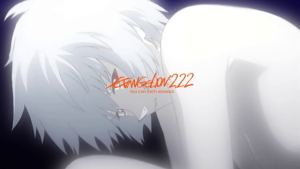 I don't need to wait until the end of this review to collect my thoughts. In the time between finishing the film and sitting down to write this review, I already knew that I absolutely loved this movie.
In *Evangelion: 2.0 You Can (Not) Advance*, we continue following Shinji, Rei, and the rest of NERV as they keep up the tireless fight against the Angels. Things are a bit different this time around as new characters are thrown into the mix: the fiery Asuka, the smooth Kaji, and the mysterious Mari. Shinji and his colleagues find themselves fighting increasingly deadly angels all the while Shinji continues to seek his father's approval.
I don't need to wait until the end of this review to collect my thoughts. In the time between finishing the film and sitting down to write this review, I already knew that I absolutely loved this movie.
In *Evangelion: 2.0 You Can (Not) Advance*, we continue following Shinji, Rei, and the rest of NERV as they keep up the tireless fight against the Angels. Things are a bit different this time around as new characters are thrown into the mix: the fiery Asuka, the smooth Kaji, and the mysterious Mari. Shinji and his colleagues find themselves fighting increasingly deadly angels all the while Shinji continues to seek his father's approval.
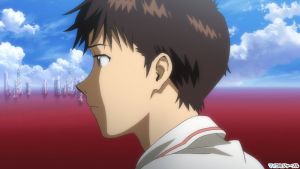 And that's as much as I can say without giving too much away in the synopsis, because besides fighting the Angels, there isn't an overarching plot moving the movie forward. Fortunately, the movie doesn't feel disjointed. This can be attributed to the characters and their relationships to one another being focused on. Each battle with angels either solidifies or furthers the characters' motivations and/or personalities. With this, while the plot could seem disjointed on paper, but in practice, while watching the movie, everything seamlessly blends together.
And speaking of battles, there are a _lot_ of them this time around. _1.0_ featured three angel battles while _2.0_ features _five_. Even the shorter ones are beautifully, breath-snatchingly animated. Some of the fights are as tense as before, if not moreso. The shorter ones are a lot less tense, but what can I say, they're damn cool and I appreciate that they're in the movie. Deeper meanings or no, I'm not going to pretend I _don't_ enjoy the giant robots beating the shit out of monsters and other giant robots. Of course, _Evangelion_ even at its most monster-of-the-week, is more than that. Thus, a legitimate concern is that a whopping five battles in under two hours is too much. Honestly, this is another example of sounding like something bad on paper but actually ending up being brilliant in practice. Believe it or not, while watching the movie, I actually thought there _wasn't_ a lot of action compared to the first movie. This can partially be attributed to the length of some of the conflicts. Mari's opening fight against The Third Angel and Asuka's fight against the Seventh Angel, both towards the beginning of the film, each clock in at five minutes, _tops_. A good portion of the movie, then, is filled with "downtime."
And that's as much as I can say without giving too much away in the synopsis, because besides fighting the Angels, there isn't an overarching plot moving the movie forward. Fortunately, the movie doesn't feel disjointed. This can be attributed to the characters and their relationships to one another being focused on. Each battle with angels either solidifies or furthers the characters' motivations and/or personalities. With this, while the plot could seem disjointed on paper, but in practice, while watching the movie, everything seamlessly blends together.
And speaking of battles, there are a _lot_ of them this time around. _1.0_ featured three angel battles while _2.0_ features _five_. Even the shorter ones are beautifully, breath-snatchingly animated. Some of the fights are as tense as before, if not moreso. The shorter ones are a lot less tense, but what can I say, they're damn cool and I appreciate that they're in the movie. Deeper meanings or no, I'm not going to pretend I _don't_ enjoy the giant robots beating the shit out of monsters and other giant robots. Of course, _Evangelion_ even at its most monster-of-the-week, is more than that. Thus, a legitimate concern is that a whopping five battles in under two hours is too much. Honestly, this is another example of sounding like something bad on paper but actually ending up being brilliant in practice. Believe it or not, while watching the movie, I actually thought there _wasn't_ a lot of action compared to the first movie. This can partially be attributed to the length of some of the conflicts. Mari's opening fight against The Third Angel and Asuka's fight against the Seventh Angel, both towards the beginning of the film, each clock in at five minutes, _tops_. A good portion of the movie, then, is filled with "downtime."
 _2.0_ seems to feature a lot more "downtime" than its predecessor, showing the pilots partaking in more leisurely activities such as cooking, hanging around the classroom, and going on a trip to a maritime preservation facility. On first glance, it might seem like this makes for a much lighter, happier movie. I'd agree with this sentiment to an extent. _2.0_ can be much lighter and funnier than _1.0_ but it can also be more cripplingly dark. As I discussed, _1.0_ was good at fostering a stable, somber tone throughout its run. _2.0_ is _wildly_ unstable which makes for a more engaging watch. The emphasis on "downtime" makes it so tension is released, we're less on edge, our guards are down. Things actually start to look up for Shinji and the gang. Gendo seems to actually be noticing his son, Asuka's prickliness is fading, Rei's coming out of her shell, and there's a big party on the way. We think everything might work out when
_2.0_ seems to feature a lot more "downtime" than its predecessor, showing the pilots partaking in more leisurely activities such as cooking, hanging around the classroom, and going on a trip to a maritime preservation facility. On first glance, it might seem like this makes for a much lighter, happier movie. I'd agree with this sentiment to an extent. _2.0_ can be much lighter and funnier than _1.0_ but it can also be more cripplingly dark. As I discussed, _1.0_ was good at fostering a stable, somber tone throughout its run. _2.0_ is _wildly_ unstable which makes for a more engaging watch. The emphasis on "downtime" makes it so tension is released, we're less on edge, our guards are down. Things actually start to look up for Shinji and the gang. Gendo seems to actually be noticing his son, Asuka's prickliness is fading, Rei's coming out of her shell, and there's a big party on the way. We think everything might work out when
 Our hearts are stomped on by the reality of the cruel world that the characters find themselves in. Towards the end of the film, shit hits the fan and it just keeps on hitting it, fecal matter flying every which way about the room. I was worried about the more comical aspects at first, fearing that it would take away from the tension. Little did I know that this would be a spectacularly great thing.
“Downtime” also helps with an aspect of the film I absolutely adore: the characters. Almost everyone seems to have a moment here, from learning about Misato's past to getting another side of Gendo. We start to see Shinji coming into his own more, becoming more confident in his abilities and trusting of others. He still seeks approval, but he's much less of a [broken bird](https://tvtropes.org/pmwiki/pmwiki.php/Main/BrokenBird). When he runs away again at the film's climax, it's not due to being afraid of his own lack of abilities, it's because he's fed up at being used, believing the trust he put in others has been misplaced. In opening up, he also opens himself up to his hidden aggression, at times seeming as angry as the cyborg he pilots. The entire English voice cast, courtesy of Funimation, is terrific, but whenever Spike Spencer screams as Shinji, I get goosebumps. Rei, as stated before, opens up a fair bit and repays Shinji's kindness towards her by trying to help him with his own personal problems. Then there's [Asuka Shikinami Langley](https://tvtropes.org/pmwiki/pmwiki.php/Main/AdaptationNameChange).
Our hearts are stomped on by the reality of the cruel world that the characters find themselves in. Towards the end of the film, shit hits the fan and it just keeps on hitting it, fecal matter flying every which way about the room. I was worried about the more comical aspects at first, fearing that it would take away from the tension. Little did I know that this would be a spectacularly great thing.
“Downtime” also helps with an aspect of the film I absolutely adore: the characters. Almost everyone seems to have a moment here, from learning about Misato's past to getting another side of Gendo. We start to see Shinji coming into his own more, becoming more confident in his abilities and trusting of others. He still seeks approval, but he's much less of a [broken bird](https://tvtropes.org/pmwiki/pmwiki.php/Main/BrokenBird). When he runs away again at the film's climax, it's not due to being afraid of his own lack of abilities, it's because he's fed up at being used, believing the trust he put in others has been misplaced. In opening up, he also opens himself up to his hidden aggression, at times seeming as angry as the cyborg he pilots. The entire English voice cast, courtesy of Funimation, is terrific, but whenever Spike Spencer screams as Shinji, I get goosebumps. Rei, as stated before, opens up a fair bit and repays Shinji's kindness towards her by trying to help him with his own personal problems. Then there's [Asuka Shikinami Langley](https://tvtropes.org/pmwiki/pmwiki.php/Main/AdaptationNameChange).
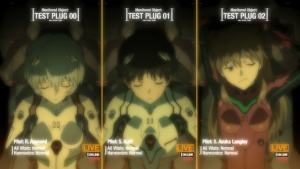 I think it's a testament to this movie's handling of characterization that I genuinely felt something for Asuka. From the brief quip I made at her expense during my last review, you’d probably guess that I dislike Asuka. You'd actually be incorrect; I loathe Asuka with every fiber of my being. A large part of this can be attributed to me disliking the prickly and abusive "[tsundere](https://tvtropes.org/pmwiki/pmwiki.php/Main/Tsundere)" archetypes in general, but Asuka in particular can be pretty nasty in how she treats Shinji. _2.0_ doesn't pull any punches with Asuka's introduction; she immediately goes on about how much better she is than others, states that she doesn't need to work with anyone, calls the other Evangelion “outdated test models,” etc. Even during her moment of vulnerability, she's sure to give Shinji the moniker "Stupid Shinji." Many groans were uttered at the sight of Asuka. But things begin to change. The insecure person beneath her facade seems to show herself more than I recall; it's obvious when she plainly states that the cockpit of the Evangelion is the only place she feels she belongs. Later in the movie, Asuka's humanity is showcased further when she offers to pilot a new Evangelion instead of Rei partly to allow her to attend a party. This allows me to sympathise with her now more than I ever could before; she's brash and a brat, but not the relentless bully that she was before. This is what allowed her misfortune to be more impactful here than it was in _End of Evangelion_. She finds herself hurt, punished for finally putting someone else first. It's truly tragic and I genuinely felt bad at the prospect of her dying. In _End of Evangelion_, her being torn apart by the Mass Production Evangelions didn't elicit a reaction besides horror at the gore. In the same movie, Asuka being choked by Shinji didn't garner much pity, either. This, though, was powerful. This was heartbreaking and made me come around to (slightly) warming up towards Asuka.
I think it's a testament to this movie's handling of characterization that I genuinely felt something for Asuka. From the brief quip I made at her expense during my last review, you’d probably guess that I dislike Asuka. You'd actually be incorrect; I loathe Asuka with every fiber of my being. A large part of this can be attributed to me disliking the prickly and abusive "[tsundere](https://tvtropes.org/pmwiki/pmwiki.php/Main/Tsundere)" archetypes in general, but Asuka in particular can be pretty nasty in how she treats Shinji. _2.0_ doesn't pull any punches with Asuka's introduction; she immediately goes on about how much better she is than others, states that she doesn't need to work with anyone, calls the other Evangelion “outdated test models,” etc. Even during her moment of vulnerability, she's sure to give Shinji the moniker "Stupid Shinji." Many groans were uttered at the sight of Asuka. But things begin to change. The insecure person beneath her facade seems to show herself more than I recall; it's obvious when she plainly states that the cockpit of the Evangelion is the only place she feels she belongs. Later in the movie, Asuka's humanity is showcased further when she offers to pilot a new Evangelion instead of Rei partly to allow her to attend a party. This allows me to sympathise with her now more than I ever could before; she's brash and a brat, but not the relentless bully that she was before. This is what allowed her misfortune to be more impactful here than it was in _End of Evangelion_. She finds herself hurt, punished for finally putting someone else first. It's truly tragic and I genuinely felt bad at the prospect of her dying. In _End of Evangelion_, her being torn apart by the Mass Production Evangelions didn't elicit a reaction besides horror at the gore. In the same movie, Asuka being choked by Shinji didn't garner much pity, either. This, though, was powerful. This was heartbreaking and made me come around to (slightly) warming up towards Asuka.
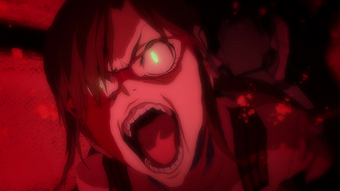 Still, that isn't to say I enjoyed the use of _all_ characters. Kaji was inoffensive enough, but didn't amount to much. Mari's role largely amounted to showing how the events of the movie were _slightly_ different. She doesn't add much to the story besides having a few cool action scenes which is more than I can say for Kaworu. For the past few movies, Kaworu's role has been simply being cryptic. His role in the last movie was to remind viewers that they weren't just watching a souped-up recap movie. Especially with him appearing on the poster two times now, you'd think that he'd do _something_, but he doesn't have so much as a conversation with another character. His appearances have been cameos, but with him touching down on Earth and essentially stealing the ending, he's at least guaranteed to be more prominent in the next movie. Right? Please?
Still, that isn't to say I enjoyed the use of _all_ characters. Kaji was inoffensive enough, but didn't amount to much. Mari's role largely amounted to showing how the events of the movie were _slightly_ different. She doesn't add much to the story besides having a few cool action scenes which is more than I can say for Kaworu. For the past few movies, Kaworu's role has been simply being cryptic. His role in the last movie was to remind viewers that they weren't just watching a souped-up recap movie. Especially with him appearing on the poster two times now, you'd think that he'd do _something_, but he doesn't have so much as a conversation with another character. His appearances have been cameos, but with him touching down on Earth and essentially stealing the ending, he's at least guaranteed to be more prominent in the next movie. Right? Please?
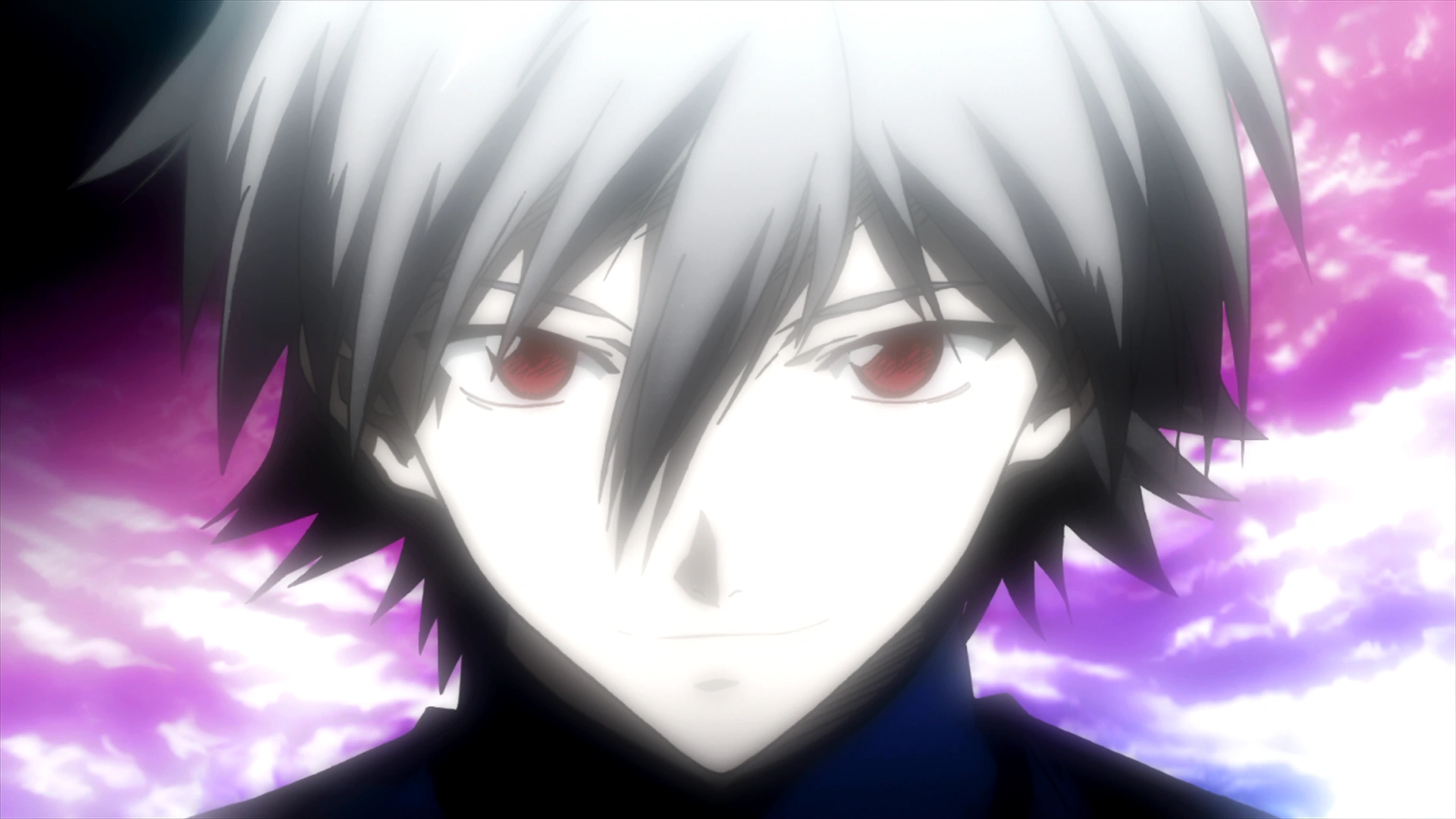 I don't really have anything new to say in the art or music department. Things still look amazing, the music, whether calm or hype, is awesome. Have I mentioned that I like Decisive Battle?
I don't want to say the ending "made" the movie since I liked the preceding elements well enough, but, Holy Hell, the ending was phenomenal. From Shinji deciding to retire at the worst possible moment, to Rei and Mari launching an ultimately futile attach against the angel (Mari isn't in the film much, but when she's in, she's _in_ commandeering any scene she's in as her own, just like Asuka's Unit 02 which she somehow rocks better than Asuka herself), to Shinji asserting that __he__ is the Evangelion Unit 01 pilot, to Shinji and an Ascended Unit 01 waging battle against Zeruel and saving Rei, this ending was sweet, this ending was tense, this ending was awesome, this ending was insane. I loved every moment of it and it ended on a hell of a cliffhanger. The intercharacter relations throughout the film pay off spectacularly in an ending that carried a lot of emotional weight for me.
I don't really have anything new to say in the art or music department. Things still look amazing, the music, whether calm or hype, is awesome. Have I mentioned that I like Decisive Battle?
I don't want to say the ending "made" the movie since I liked the preceding elements well enough, but, Holy Hell, the ending was phenomenal. From Shinji deciding to retire at the worst possible moment, to Rei and Mari launching an ultimately futile attach against the angel (Mari isn't in the film much, but when she's in, she's _in_ commandeering any scene she's in as her own, just like Asuka's Unit 02 which she somehow rocks better than Asuka herself), to Shinji asserting that __he__ is the Evangelion Unit 01 pilot, to Shinji and an Ascended Unit 01 waging battle against Zeruel and saving Rei, this ending was sweet, this ending was tense, this ending was awesome, this ending was insane. I loved every moment of it and it ended on a hell of a cliffhanger. The intercharacter relations throughout the film pay off spectacularly in an ending that carried a lot of emotional weight for me.
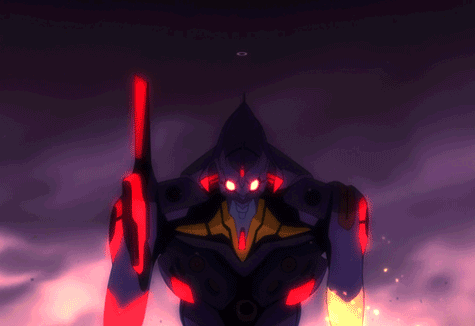 So that's what you can get out of the movie in-and-of-itself, but what about in relation to the original _Neon Genesis Evangelion_?
Straight out the gate, we're treated to a completely new scenario featuring newcomer Mari Makinami Illustrious, as if apologizing to the viewers that _1.0_ stuck so closely to the original _Evangelion_. I'm pretty sure that's the actual, intended function of the scene because we cut to Shinji immediately after, with Mari not seen again for most of the movie. The first bit of the movie proceeds like the show, though with an increasing amount of changes. Towards the end, things have changed significantly as Asuka is the one piloting the ill-fated Unit 03 instead of Toji. The ending, while borrowing aspects from various episodes such as episode 23 and episode 19, is almost completely a new creation of the movie.
The ending marks a distinct turning point in the Rebuild where veterans can point and distinctly say that this is the point in which it comes into its own as an entity separate from the previous continuity. Tragedy is averted as Shinji, against all odds, manages to save Rei while in the previous continuity, Rei would have perished. The Evangelion ascends to a seemingly God-like state, making it seem less grounded in tangible rules? Mari states that "things just work out for [Shinji]." Even as a fan of the movie, this rubbed me the wrong way. If nothing else. Shinji has always been a supremely unlucky person who finds that absolutely nothing goes the way he wants it to in the end. But this is a new continuity, a seemingly more hopeful one, A continuity in which, even if they must go through horrible trials to get there, there's a light at the end of the tunnel. To some, this might come across as cheap, but it comes across as refreshing, new take on _Evangelion_. I'm excited to see where they take this new direction.
So that's what you can get out of the movie in-and-of-itself, but what about in relation to the original _Neon Genesis Evangelion_?
Straight out the gate, we're treated to a completely new scenario featuring newcomer Mari Makinami Illustrious, as if apologizing to the viewers that _1.0_ stuck so closely to the original _Evangelion_. I'm pretty sure that's the actual, intended function of the scene because we cut to Shinji immediately after, with Mari not seen again for most of the movie. The first bit of the movie proceeds like the show, though with an increasing amount of changes. Towards the end, things have changed significantly as Asuka is the one piloting the ill-fated Unit 03 instead of Toji. The ending, while borrowing aspects from various episodes such as episode 23 and episode 19, is almost completely a new creation of the movie.
The ending marks a distinct turning point in the Rebuild where veterans can point and distinctly say that this is the point in which it comes into its own as an entity separate from the previous continuity. Tragedy is averted as Shinji, against all odds, manages to save Rei while in the previous continuity, Rei would have perished. The Evangelion ascends to a seemingly God-like state, making it seem less grounded in tangible rules? Mari states that "things just work out for [Shinji]." Even as a fan of the movie, this rubbed me the wrong way. If nothing else. Shinji has always been a supremely unlucky person who finds that absolutely nothing goes the way he wants it to in the end. But this is a new continuity, a seemingly more hopeful one, A continuity in which, even if they must go through horrible trials to get there, there's a light at the end of the tunnel. To some, this might come across as cheap, but it comes across as refreshing, new take on _Evangelion_. I'm excited to see where they take this new direction.
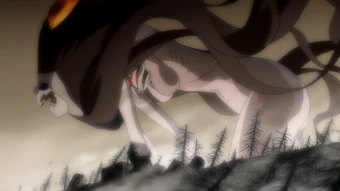 It's funny that I praise the characterization when characterization is apparently one of the most lauded aspects of the Rebuild continuity. To many, the characters seem more shallow than they do in the show. I think this can be at least partially attributed to the legitimate criticism that the movie runs under the assumption of assumed knowledge. For example, people state that Misato's backstory wasn't fleshed out when, at first glance, I thought her backstory was fleshed out enough. But, thinking about it, considering that I was leisurely reading the [Evangelion Wiki](https://evangelion.fandom.com/wiki/Main_Page) a few days ago, it's likely that I just filled in the blanks. Similarly, a lot of Asuka's attitude makes more sense if you know the deal with her mother, which is something expanded on in the show. There's also Rei speaking about how there will be more of her; something that only makes sense if you've seen the show.
Besides backstories, prior knowledge helps other aspects of the film. This movie seemingly doesn't feature the death of any major character, but if you watched _Evangelion_ you'd come to expect characters to die, thus the movie generates tension through nothing other than its relation to the source material. If I'm being perfectly honest, it's possible that my feelings for these characters were only made possible for following them for 24+ episodes prior.
It's funny that I praise the characterization when characterization is apparently one of the most lauded aspects of the Rebuild continuity. To many, the characters seem more shallow than they do in the show. I think this can be at least partially attributed to the legitimate criticism that the movie runs under the assumption of assumed knowledge. For example, people state that Misato's backstory wasn't fleshed out when, at first glance, I thought her backstory was fleshed out enough. But, thinking about it, considering that I was leisurely reading the [Evangelion Wiki](https://evangelion.fandom.com/wiki/Main_Page) a few days ago, it's likely that I just filled in the blanks. Similarly, a lot of Asuka's attitude makes more sense if you know the deal with her mother, which is something expanded on in the show. There's also Rei speaking about how there will be more of her; something that only makes sense if you've seen the show.
Besides backstories, prior knowledge helps other aspects of the film. This movie seemingly doesn't feature the death of any major character, but if you watched _Evangelion_ you'd come to expect characters to die, thus the movie generates tension through nothing other than its relation to the source material. If I'm being perfectly honest, it's possible that my feelings for these characters were only made possible for following them for 24+ episodes prior.
It's very possible Anno failed his mission in making these films accessible to both newcomers and veterans. As a veteran, I loved this film and I'm sure there are many things newcomers can get out of it, though my perception is ultimately skewed. I was afraid that I'd have to write a review criticizing the new direction. If I do have to write that review, it's not for _2.0_. _You Can (Not) Advance_ emerged from the shadow of its big brother, _Neon Genesis Evangelion_ and is ultimately better for it, taking its continuity in exciting, uncharted territory. This movie exceeded my expectations and once again, I am very excited to see what the next movie has in store. At the end of the film, Kaworu, almost threateningly, tells Shinji that he'll show him true happiness. I hope he has some in store for me, as well.
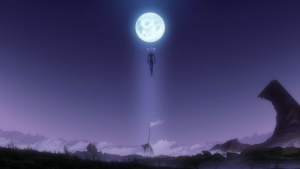 9.2/10
A-
9.2/10
A-
WanderingSage
65/100An Interesting Evangelion Expansion With an Interesting Meta-CommentaryContinue on AniListEdit: After seeing the final Rebuld 3.0+1.0 I had some additional thoughts and rewrote a little of my initial review to reflect what I now know. My personal thoughts are under spoiler and simply reflect my personal interpretation of the series. Feel free to ignore all that if you only want a general recommendation. My overall opinion is that Evangelion is a great series and there's nothing quite like it out there. The movie series really needs to be enjoyed as a whole and not as a stand-alone production. With that said, here is the review and my thoughts:
The Evangelion series is one of the most influential series in the anime medium. People have been discussing it since it came out in the 90s, and many people have taken different messages from it over the years. Everyone who has seen the original NGE seems to have a bit of their own take on it, ranging from empathy with the characters, to dissecting the quasi-religious symbolism, to more simply just enjoying giant mecha fighting interesting monsters and all variations in between. People write dissertations inspired by this anime. Many character archetypes were solidified by this anime, and for better or worse, the industry was forever changed after this show became popular.
My previous experience with NGE (the series) soured me on the anime. While I enjoyed the first half of the show, and its world, I was turned off by the second half of the show and the somewhat bizarre resolution and ending that felt out of place in its general tone. While the show had the tools to be a pretty great mecha show, it failed for me because it was ultimately secretly hiding a message in the spectacle, and then garishly shoving it into my face and forgetting to actually resolve it in a way that wasn’t preachy at best and pretentious at worst.
The movies make the message a bit clearer as they have stripped away a lot of the scenes from the show and by nature of only having about two hours to tell significant portions of the story, it is a lot more succinct than the televised anime was. Because of this, I enjoyed the movies far more than the original series once I accepted that the general theme of this anime was not to actually tell us a mecha story per se, but tell a message through a mecha story if that makes any sense.
With regards to the technical aspects of the show, they are very good. The world of Evangelion has been cleaned up and polished and it definitely looks and sounds quite a bit better than the original series from a visual standpoint. Things are far more fluid and the action feels more immediate. The voice acting and sounds have been cleaned up a bit as well. Technically this show feels very polished compared to the original. The additional care and budget over the original are shown well.
With regards to actually reviewing the anime itself, Evangelion is tough to dig into without waxing philosophical and throwing personal interpretation into what one sees. After watching the movies and the original show one more time, drinking quite a few beers, and collecting my thoughts I will offer my unnecessary interpretations. I suppose I’ll spoiler here as this is more of a personal interpretation that some may not care to read if they just want a final score and is it worth watching.
So…
I’ve generally found that over the years, people who have really enjoyed and gotten something out of Evangelion have been dealing with personal issues of some sort and especially depressive episodes. Many tell me that they enjoyed Eva as a show because of how deep and relatable the characters seemed. This is an interesting view point, and is worth looking into a bit as Eva is at it's heart a character study of sorts. I was a young man when NGE was released, and those who had watched it in the late 90s and 2000s had thought that it was great and groundbreaking. It showed the horrors of what actual mecha would be like in an apocalyptic scenario. Also, there was a lot of cultural malaise and a bit of a search for purpose for a lot of people in a popular culture embracing nihilism to a large degree. To be honest, I hated almost every character in this show and instead of finding them relatable, I found them tragic and a case study in how not to approach life in a healthy way. I was sympathetic towards them, as they do have difficult issues they're dealing with, but that doesn't excuse much of what they do, or their terrible personalities. What does Eva and it's creator Anno really have to say to us? Well, a bit of background setting might be helpful.
The late 90s before the terror attack in New York were a strange time culturally. NGE was an anime pretty well set for the age that we found ourselves. However, one must also remember, this is an Japanese production, and what we were experiencing in the west was different than the culture and zeitgeist in Japan at the time. Japan was smack in the middle of a major loss of confidence after the economic issues suffered in the 1980s and times were changing in Japan to the point where people started retreating inwards and feeling defeated. Japan is still in many ways not fully recovered from their economic crash. Because of this, it was an interesting commentary on Japanese culture at the time, and accidentally captured some sympathy from western folks as well, especially those willing to retreat inwards and rail at the world for not fitting their expectations for whatever reason.
I tended to think that NGE sort of had a bit more of a meta message to it, beyond the robots, the apocalypse, instrumentality, nightmarish revelations, the “waifus” and what have you. One doesn’t write a story like this without trying to make some kind of greater point. Also, as mentioned previously, this is a product of Japanese culture. This greater message has very very little to do with the religious symbolism in the story that people love to discuss. Having lived in Japan and studied the culture for many years, Japan has a similar level of fascination with Christian symbols that many new agers in the west have with practices such as Zen Buddhism or yoga.
Japanese in general do not have a deep understanding of what Christian symbols mean to westerners. Similarly, westerners do not generally have a deeper understanding of what Buddhism and other eastern practices mean to eastern culture either and tend to gloss over the historical context of these things because they're interested in the foreign aesthetic or differences from their own culture. Basically, Japan is interested in Christian symbols because they are foreign and cool. Many games and other shows love the aesthetic of demons and angels and don't really portray them in a way that's consistent with cursory biblical or Jewish scholarship. It's fun for many of them to look outside their own culture that many times they're tired of to find something "mysterious and interesting". However, as with all things brought into Japan, the Japanese put their own twist on things and modify it to their own aesthetic and cultural sensibility. This is the same thing for many of us watching anime as well. We like the foreign aesthetic and rarely learn deeply enough of the language or history of Japan to grok why something is funny or relevant to Japanese sensibilities. Those who understand why Zetsubou Sensei's jokes are funny tend to be fewer than those who enjoy the latest rom com harem show for cute girls, or the mecha show for it's giant robot battles.
Every interview that I've read that Anno has given has told us that the Christian/Jewish symbolism was chosen to stand out and be cool. Anno has also given interviews that show he only has a surface level understanding of some of the philosophy that people attribute to this show as well. This is well documented and can be easily found online for any who don't trust me at my word. Do your own research and make your own conclusion on this but Anno isn't a western religious scholar. Anno is not a deeply read western philosopher either. He appreciates these things like many in Japan do, but our western centric interpretations of this series are largely missing the point. My educated opinion on this is that the folks that write these long theories on what's happening with the symbolism are attributing western centric cultural understanding to an eastern interpretation of the symbols. They're also overestimating Anno's knowledge of these things that are second nature as part of western culture. Comparing apples to oranges essentially. This is why there are 100s of different interpretations of what's going on in the show. The overall message and reason for the rebuild movies doesn't have much to do with piloting robots, 3rd impact, angelic mysticism and all of those things. This is background. Were it central, there would not be such a strong focus on the personalities of the characters and their internal struggles. The rebuild movies do much to strip the focus from various symbols and the interesting scenes are fully on the characters and their personal issues and reactions to each other.
The biggest inspiration that I took away from NGE, was that at some point, people need to face reality and make changes in their lives in order to, if not be happy, at least move forward and be human. I was unsure of whether or not Anno had this undertone in his original series explicitly, but after watching the movies recently and drinking a lot of beer to get into a reflective mood, I’m pretty sure that this was the underlying message all along in the franchise, especially considering what Anno himself seems to feel about the fanbase and how they are interpreting his work. Anno always seemed to be incredibly frustrated at the fanbase. Many of the people that mention that Evangelion is not the same or ruined after the release of the movies may be missing the point a bit.
The second movie shows the characters of Evangelion in a far different way than the original NGE portrayals. In basic terms, all of the characters in the second movie are "idealized" versions of themselves. This is in comparison to the 1.0 Rebuild movie, which requires no real analysis as it is basically the first 6 episodes or so of NGE recreated in HD for the big screen with a few extra interesting scenes here or there. The tone and characters are more or less identical. However, in this movie, Asuka herself takes a new surname which even further emphasizes that things are quite different here. While we run through many similar scenes in the second movie to the original NGE, things are far more brighter and show us how things might have progressed with these characters had they adopted some more healthy outlooks and worked through their issues. My original view of NGE (as stated in my review of the show) was that it was very difficult to relate and root for the characters as they did nothing to advance themselves and overcome their obstacles. Well, in this movie, they appear to be working towards that. Shinji appears to grow a pair and take more decisive actions, Rei is moving out of her doll-like barely human ways and becoming warmer and nicer to everyone. Asuka acts like a rom-com tsundere, complete with fanservice misunderstandings and jealousy of Rei to the point of cooking food for Shinji. Even Shinji's father Gendo is apparently thinking that he should try to relate to people in healthier ways after a dinner with Rei. There is also a bizarre romance subarc going on where Rei and Asuka are seemingly vying for Shinji that was not in the original series, but fan fictioned quite heavily over the years.
The change in tone for the second movie compared to NGE was so jarring that I was almost laughing at how different things were. I kept saying to myself, these characters as they are in NGE would never do these things. This movie's tone is too bright and almost moving towards a more modern style mecha battle like Darling in the Franxx or maybe even Infinite Stratos, although that's a bit of a push. Even the addition of the Mari character, (who feels like a harem style addition to the show, singing tunes in her introduction and complaining about her chest not fitting into her plugsuit, crashing into Shinji bust first) shows up out of nowhere. Explanation of her origin? Completely glossed over. Relevance to anything in the story? Maybe she's a spy? Huh, every scene she's in is just her singing about how fighting is fun, or sabisu sabisu! Her crawling up to Shinji after smashing into him rack first (comical BOIN sound included) and sniffing him is just pure harem fantasy. What the heck is that doing in our serious psychological mecha show?
All these out of tone events and character interactions telegraph that something ain't right here. This is rom com nonsense in your serious, philosophical wankery show. What was the point of the tone change to lighter and brighter here?
All of this brighter tone stuff ultimately has a point once we transition to the third movie, where the tone shifts in the opposite direction and we are snapped back to how things really are so to speak. The second movie ends up being an indulgence for the fans more than anything. Something that a fan fiction author would write about how things "should have gone in NGE". Many of the fans were given what they wanted here, and the second movie was scored pretty highly by many fans because they enjoyed these new interpretations of the characters. It seems that Anno gave the fans what they wanted here and then took it all away in the third movie. The subtitle of the second movie being "you cannot advance" could be interpreted in a few ways. It seems that Anno may have been taking a jab at the fans with this subtitle, saying that they can't advance beyond their desires for what is shown in the second movie, missing his greater point of needing to accept things and advance in your life and avoid the escapism of Shinji's headphones. It's not a coincidence that after leaving his headphones behind and "manning up" so to speak during the course of this movie, that he ultimately gets them back at the end of the movie after making his difficult decision at the climax.
At any rate, people “can” advance in their lives and find purpose. However, as with Shinji in EVA, many people do not. Anime fandom itself has become an interesting study in escapism over the years, especially after NGE’s impact on subsequent shows. Japan is a place where many people have been dropping out of society altogether and there are more and more cases around the world of people leading unfulfilling existences and diving into escapist utopian fantasy (in entertainment and real life) because for various reasons, people are unable or unwilling to deal with the difficulties of the world and the expectations of society as a whole.
While there are many, many reasons for this, almost as many as there are crackpot solutions, politicians of all ideologies promising panaceas, and other means of trying to find some way of coping with life and society; what ultimately leads to fulfilment is not avoiding life itself (which is unintentionally leading to all sorts of mental problems during our current pandemic), but accepting that you have to advance yourself in some way and continue to move forward. Life will kick your ass if you let it. The answer is not to retreat and be alone with your headphones like Shinji. The answer is to accept that life is both painful and wonderful and to live it and struggle mightily and virtuously against it. Wallowing in self-pity and woe is me bullshit ultimately causes personal suffering, lacks virtue and isn’t productive. In the case of Evangelion, that kind of behavior helps bring about the end of the entire world.
As I mentioned in my original series NGE review, all of the characters in this story are flawed and have some variation of woe is me selfishness they are dealing with and never advance beyond. Essentially lacking in virtues that we typically admire. With the possible exception of Rei and the recently introduced Mari, everyone in this story is lonely, maladjusted, and trying to cope in various self-destructive ways. While they may be in various stages of depression, or even psychosis which could cause these behaviors, none of them are doing what any competent therapist would have them do and work towards integrating into reality in productive self-actualizing ways. With very rare exception, no one shows any empathy towards anyone in the original NGE. There are touches of this shown in the second rebuild, but again, because they are so different from our earlier experiences, they are jarring for how out of place they are.
Self-centered people rarely consider how others feel and only worry about their own feelings and how others make them feel. Shinji and Asuka are both toxic people in this way. Tragic in their backstory perhaps, but many people with worse tragedies are far more well adjusted and take a healthier approach to life. A difficult and in many cases abusive childhood is pretty damn common, it's not an excuse to act like a tool all the time. When my boss or my girlfriend is acting annoying or in a toxic way, their childhood troubles don't excuse the fact that they're being annoying. It doesn't change the fact that I don't want to be around or accept their antisocial behavior and it's not an excuse anyone should put up with. I can refer people to anyone from the Berserk series, Tengan Toppa Gurren Lagann, or any other examples of western or eastern media for sad tales of woe or for examples of shitty worlds with people that are far more functional than the teenagers in this movie.
The fact that they are "realistic" or at least said to be by many folks is a sad commentary on society more than a point of praise I'd say. If this is "reality" than we're all in a pretty bad place as I don't want to be around people like the characters in this story and I doubt anyone else would either. There's a lot of therapy they need to work through before saving the world here. Part of becoming a "hero" is moving away from self-centered narcissistic nonsense and accepting duty and responsibility to others. This is also a very Japanese cultural expectation that is somewhat misunderstood in the west, again due to cultural differences many people don't fully appreciate. Shinji's behavior is repulsive to us because in western culture, we expect him to step up and take action to save the day because courage is a respected virtue and Shinji's behavior looks like cowardice to western sensibilities. In Japan, he is also expected to step up, but not necessarily to become a courageous hero per se. Japanese culture expects everyone to do their duty and fulfill their role in life without complaint. Shinji spends a lot of time ducking his responsibility, which is frowned upon in a western culture with our "I'll do what I want" attitude, but extremely bad in Japanese culture. Ganbarimasu Shinji-kun!
Although I suppose the new character of Mari would fit the mold of someone who is actually approaching things a bit more favorably and seems to be far more well-adjusted, doesn’t she? Many people think she’s out of place in this story. I agree with this point of view. She’s someone that I would entrust with saving this world over the other characters in this story. Anno himself is on record as saying and I'm paraphrasing here "Mari is the only character in which there is no part of me". Again, look up the interview on this if you don't trust my interpretation. As I mentioned, all the other characters are suffering from various forms of depression or other mental issues, but Mari, for all her quirky upbeat sunniness, doesn't wallow in any of that, and has positive interactions with the world and the situations that she's in. I would hate to be around Asuka or Rei, but Mari seems like she would be a person that would make my day better just being around. She’s jarring for the very reason that she’s everything that the other characters in Eva are not. She more or less accepts the pain and suffering of the world, but continues to fight against it regardless. Courageously fighting mechs, or accepting her duties without complaint, satisfying the virtues of both eastern and western culture simultaneously.
This is the proper approach and what needs to be done in an apocalyptic situation. Misato, also gets things together to rally the defenses each time as well, as she can step away from the self-absorption a bit and see the grander picture as well. There are things that are bigger and more important than oneself, and Mari is the only one who seems to get it among our pilots, heaving bosom and cheery harem heroine attitude aside. I see this character as ultimately salvaging something of worth from the franchise, even if she's not all that much explained in the movies at all. However, the message represented by her archetype is important. Doing what needs to be done and accepting responsibility. She’d be more at home in Gurren Lagann (TTGL) honestly, and that very well may have been the ultimate point of her character.
The struggle to overcome difficulty is what makes you human and there is a nobility and dignity in this struggle that these characters are missing. It’s the difference between living a meaningful life and just merely existing. Human beings are ultimately going to break if all they do is simply exist. Doing only what makes you happy in the here and now isn’t the answer either. Happiness is nice, but it’s fleeting and ultimately a selfish way of figuring out what to do. It won’t fix your problems to seek easy happiness, and in many cases, it actually makes the situation worse.
Finding meaning in life is profoundly simple, yet not necessarily easy if one embraces the types of escapism symbolized in Eva. Life is meant to be lived. Life is not something that one should simply endure. That way leads to all manner of malaise and in the case of Evangelion, leads to the major disaster. Those who live and not merely exist, will find their way to purpose, which leads to everything else that all the characters in this show are missing.
“Get in the fucking robot Shinji”, beyond being a funny meme, is directly the type of advice our selfish protagonist needs. Not because of some narcissistic need to be a hero, but because it’s Shinji’s damn duty and responsibility. As Gandalf once said to Frodo in the movies in the early 2000s:
Frodo: I wish the Ring had never come to me. I wish none of this had happened.
Gandalf: So do all who live to see such times; but that is not for them to decide. All we have to decide is what to do with the time that is given to us. There are other forces at work in this world, Frodo, besides the will of evil. Bilbo was meant to find the Ring. In which case, you were also meant to have it. And that is an encouraging thought.
When the call to action comes, it isn’t always convenient, easy or fair, but it does require an answer when the stakes are world destruction. Get out of your headphones and into the cockpit, do your damn duty, the world needs you. Similar can be said of quite a lot of anime fandom as well, metaphorically. Such was likely Anno’s message here.
Ultimately, Kamina from TTGL needs to punch everyone in this show in the face and demand some teeth be grit. Then move to much of the rest of us in the audience. Sometimes we all need a reminder to shut the hell up and move forward in life. Evangelion is less a mecha show and more of a warning about what can happen to you if you fall into the comforting bosom of empty escapism and fantasy and crippling passivity as Shinji pathetically dives into again and again, ultimately rejecting the entire world for it to get those headphones back from Rei. While it’s fun to explore these strange idealized worlds (I enjoy fiction a lot more than I should at times too), it’s important to remember that you should only visit, not live there like Shinji seems to.
The themes are made even more explicit in the third rebuild movie, which I’ll probably write thoughts on at some point as well. Many people didn’t like the third movie, I suspect because the message Anno was giving to people was a bit clearer and didn’t sugar coat things in upbeat out of place school romcom tones that the second movie dipped into. It showed people that they should actually make progress, because the consequences are pretty dire if you don’t. I found that movie interesting and gained a bit more respect for the message after watching it, but I will save thoughts for a potential review on that.
I do not really like the characters of this show as they never quite get it (Mari being a weak exception as I like the character, but she's so jarring that it's awkward), but I think I understand what Anno was trying to do with them after seeing the movies. I think in the end, we’re not really supposed to like them, as they are warnings of a sort that tsundere characters, weak willed protagonists, and emotionless doll-like characters are actually pretty messed up if you take a step back. It’s a shame that anime and the fandom decided that they wanted much more of this than not.
Edit: At the time of this review, I had not seen the 4th Evangelion rebuild movie and am unsure if Anno will take things in a dark path or use characters like Mari to "redeem" things. Honestly, it could go either way, but if I'm correct in my interpretation of 2.0 and 3.0, I believe that Anno will end things on a positive note where the characters learn to move on and live life and the giant robots and religious symbolism ultimately didn't mean that much. I plan on catching the movie at the theater in Japan when it comes out with some colleagues, and am honestly curious how this saga ends more than I am about any real insights into the world or story.
Edit: After seeing the final Rebuild 3.0+1.0 movie and its "resolution" to the story. I stand by everything that I wrote here. Without spoiling detailed things from the recent movie (but skip this is you don't want any chance of a spoiler), the character interactions and the final scenes of the movie especially give us a resolution where the journey of the protagonist Shinji (who is basically a surrogate Anno or our self-insert in this story) comes to its conclusion and he learns to accept things and move forward in the real world. Ultimately one that goes beyond Evangelion. The final message of this seems to be that life is worth living, leave Evangelion and anime and empty escapism behind, get a cheerful busty girlfriend, and take your place in society. Do your duty in other words. While it was definitely made for a Japanese audience's sensibilities, I think it will be obvious to anyone that watches it what the message is.
As a final aside to this rambling, modern anime is quite a bit less inspiring these days because of shows that try to emulate the escapist fantasy of shows like Eva and consequently not show people to aspire to very often. People aspire to be like the heroes Kamiya, Simon, or Yoko in TTGL, even though the situation in TTGL is a very difficult and harsh one without much comfort. People may sympathize with heroes like Shinji, but no one wants to BE LIKE Shinji. People may want to get to pilot an EVA or live in Misato’s apartment like him, fantasizing about fan service with her and Asuka, but one can envy any number of mediocre interchangeable harem protags these days for their situation of willing nubile partners. NGE and Evangelion were a warning about where this path leads, which may be why Anno seems so frustrated all the time. Coming from this angle, it’s somewhat understandable, if perhaps a bit harsh.
Anyway, that’s my interpretation of the second movie specifically.
Beyond my unnecessary 3000 or so word interpretation, is this a good movie to watch? I would say that it is. I had a fun time with this show. It's more enjoyable than the main series from an entertainment perspective, although it's a bit less thought-provoking than the original series.
HOWEVER, it should be watched after going back and seeing the original series for context, because as a stand-alone work of fiction, this isn’t that great when viewed outside of the other works in the franchise. I would strongly recommend watching the first movie in the rebuild series as this movie would be difficult to follow without at least watching that. As I mentioned in my NGE review, different people are going to get different things out of these movies, and it is up to you to interpret Evangelion for yourself. It is also an important tool in your arsenal of understanding modern anime as well, it would easily be in a top 10 or even 5 most influential shows of all time.Evangelion, for better or worse, is one of the must watch anime series out there for the sheer influence that it’s had on the industry and culture. Beyond the importance to the medium itself, this anime is generally entertaining or at the very least thought provoking enough that just about anyone can get something out of it. While the story has a few issues to it and at times goes a bit far in places, it’s enjoyable to watch if you enjoy mecha and a bit of psychological fiction and meta-commentary. At the time of this writing, the 4th and probably final movie in the series is scheduled to be released, so it’s also great to catch up to where things stand as well.
The movies and series get a strong recommendation.

Santt
55/100Uma sequência com novas visões, acontecimentos e personagens de Evangelion. (Tempo de leitura: 5 minutos)Continue on AniList__Considerações iniciais__ Nesta review, irei utilizar de tópicos que considero relevantes a serem analisados sobre minha experiência ao assistir o filme em questão. Nestes tópicos, irei falar mais detalhadamente sobre os pontos citados.
Tentarei ao máximo não colocar qualquer tipo de spoiler sobre o filme, mas recomendo fortemente você ter assistido ao filme antes de ler essa review.
Já fiz a review do filme que antecede esse, então recomendo você ler a review passada para que tenha algumas noções do que vou falar aqui.
A sinopse citada abaixo foi algo pensado por mim mesmo, tomando como base a minha experiência com o filme.
(Tempo de leitura: 5 minutos)
__Sinopse__ Os anjos que continuam a atacar a humanidade precisam ser combatidas com as unidades "EVA" controladas por pilotos específicos. Nesta sequência, Shinji ganha mais motivos para poder pilotas esses robôs gigantes, mas ainda possui receios quanto a isso.
__Introdução__ Dando sequência a essa nova visão da aclamada obra, Evangelion, partimos para eventos e acontecimentos que, diferente do filme antecessor, possui bastante mudanças com relação ao anime da década de 90.
__Enredo__ Algo que eu esqueci de comentar na review do filme passado, é o fato da obra ter bastante ligação e elementos que remetem a religiões. Há bastante coisa solta aqui e ali que dá a entender bastante representações, assim como os elementos visivelmente mais trabalhados e explicados com o decorrer do tempo. Esse é um elemento do enredo bastante importante para a trama principal que eu esqueci de comentar, por favor, me desculpe.
Senti que esse filme não foi tão focado em trabalhar com a personalidade do protagonista, Shinji. E sim em mostrar os novos personagens que foram introduzidos (irei falar mais para frente). Também senti um maior foco na ação, e esse fator é importante para a trama desse filme em específico, já que vários acontecimentos partem de eventos que envolve combate.
Falei acima que o enredo aqui não teve tanto foco no Shinji, mas de qualquer forma houve alguma coisa envolvendo ele, e é aqui que as coisas se perderam bastante. Do início até quase o final do filme, ele trata bastante dos outros personagens que tem relação direta com os acontecimentos principais e o protagonista, assim como as partes já citadas onde envolve os confrontos contra os anjos. O protagonista começa a ter um maior foco no final do filme, mas a forma como o roteiro lidou com essa atenção para ele é, de forma bem direta, conveniente. Acontecimentos e momentos que são visíveis de perceber que foi algo planejado de forma conveniente acaba por tirar muitos méritos do filme.
Portanto, o enredo principal desse filme é voltado para os outros personagens, ação e no final uma forma apressada e conveniente de se trabalhar o personagem principal que ficou mais ofuscado uma boa parte do tempo com relação ao filme anterior. Não há problemas em tirar o foco do protagonista para trabalhar outros elementos presentes na obra, mas forçar uma rápida e nada natural desenvolvimento do protagonista no final do filme, foi um dos pontos mais fracos do longa metragem.
__Personagens__ Como eu já disse, é nesse filme que há bastante mudança com relação ao anime de 95, e isso também abrange os personagens. Além dos clássicos personagens da obra, que são de modo geral bons e envolvem todo o contexto da obra, um novo elemento surge de uma forma um tanto quanto inusitada. Ele não teve muita interação ao longo do filme, mas desempenhou um papel importante para os acontecimentos finais assim como um gancho para novas visões nos próximos filmes.
Fora esse novo personagem, as demais figuras presentes no filme continuam sendo boas e bem características de certa forma.
__Produção / Animação__ A produção aqui ainda continua excelente, mas dou bastante destaque as cenas de ação que são presentes em vários momentos do filme. E mesmo com esse ritmo bastante movimentado, a equipe do projeto lidou muito bem em fazer cada cena ser muito bem feita e impecável.
A trilha sonora ainda também continua boa nos moldes do filme anterior.
__Conclusão __ Foi bastante interessante pelo fato das mudanças no roteiro tomando como relação o anime de 95, e isso é normal, já que é uma reconstrução. Para quem gosta de cenas de ação, esse filme é recheado de boas cenas de combate. Só senti uma perda no foco em desenvolver a personalidade de alguns personagens que tiveram e são de bastante importância para a obra, mas nada de tão relevante. O fato de ter conveniências no final me deixou bastante desgostoso, esse foi o elemento mais fraco do longa.
Mesmo com os problemas que citei acima, diria que ele foi um bom filme e uma boa sequência. Nada de tão impressionante, mas também nada de tão ruim. Foi uma experiência linear, só que mais voltada para os pontos positivos. As cenas finais do filme são excitantes e empolgam para a sequência.
__Considerações finais__ Obrigado por ler até aqui! Essa é minha segunda review referente a essa nova visão de Evangelion. Já fiz review do filme anterior (como citei lá em cima), recomendo, novamente, lerem minha review do filme passado, tem bastante coisa lá que usei de comparação aqui, mesmo que isso não pese na nota ou algo assim. Gostaria muito de saber o que acharam da review, seja de mau ou de ruim, sou muito aberto a qualquer tipo de comentário (que não seja ofensivo, por favor). Para comentar, deixarei um post aqui no AniList e um no meu Twitter referente a review em questão. E não deixe de conferir as minhas _reviews _dos outros três filmes de "Rebuild of Evangelion.
SIMILAR ANIMES YOU MAY LIKE
 ANIME Action86: Eighty Six
ANIME Action86: Eighty Six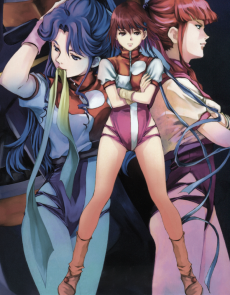 OVA ActionTop wo Nerae! GunBuster
OVA ActionTop wo Nerae! GunBuster ANIME ActionKaijuu 8-gou
ANIME ActionKaijuu 8-gou
SCORE
- (4.05/5)
TRAILER
MORE INFO
Ended inJuly 27, 2009
Main Studio Studio Khara
Favorited by 2,111 Users




